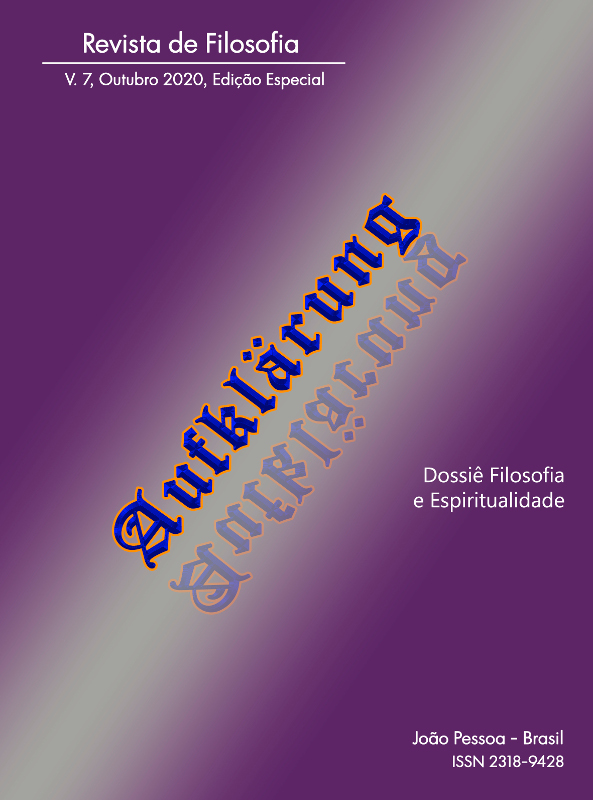Some questions on the essence o f reason in Heidegger
DOI:
https://doi.org/10.18012/arf.v7iesp.56742Keywords:
World, anthropology, DaseinAbstract
This article aims to approach the phenomenological view on the essence of reason inside the boundaries of Heidegger’s work The essence of ground. The world as a concept was firstly conceived by Kant’s philosophy, which showed a conception of world as an objectiveness produced by the reason. Following this way, Heidegger will elaborate an all new phenomenological conception of the world together the conception of man, as a Dasein. From this Heidegger’s conception of man, is proposed that man and world are based on the same existence of the Dasein, as a new grounding and showing a new philosophical anthropology. Man and world, hereafter, must be correlate in its phenomenological existence.
Downloads
References
HEIDEGGER, M. El ser i el tiempo. Trad. De José Gaos. México: Fondo de cultura económica, 1997. Tít. Original: Sein und Zeit. Max Niemeyer Verlag, Halle, 1927.
HEIDEGGER, M. Les concepts fondamentaux de la métaphysique: monde-finitude-solitude. Trad. de Daniel Panis. Paris: Gallimard, 1992. Título original: Die Grundbegriefe der Metaphysik: Welt-Endlichkeit-Einsamkeit, Band 29/30 Gesamtausgabe.
HEIDEGGER. M. A essência do fundamento. Ed. bilbigüe. Trad. de Artur Morão. Lisboa: Edições 70, (1988). Tít. original: Vom Wessen des Grundes. [Tradução brasileira de Ernildo Stein: In: Heidegger e Sartre. Col. Os Pensadores, São Paulo:Abril Cultural, 1973].
STEIN, E. A caminho de uma fundamentação pós-metafísica. Porto Alegre: Edipucrs, 1997. 163p.
Additional Files
Published
How to Cite
Issue
Section
License
Copyright (c) 2020 Aufklärung

This work is licensed under a Creative Commons Attribution 4.0 International License.
Journal general policy
1.This journal works under a Creative Commons License aplied to online journals. That icence can be read in the following link: Creative Commons Attribution 4.0 International (CC BY 4.0).
2.Accordingly to this License, a)the journal declares that authors hold the copyright of their articles without restrictions, and they can archieve them as post-print elsewhere. b)the journal allow the author(s) to retain publishing rights without restrictions.
Metadata Policy for information describing items in the repository
1. Anyone may access the metadata free of charge at anytime.
2.The metadata may be re-used in any medium without prior permission, even commercial purposes provided the OAI Identifier or a link to the original metadata record are given, under the terms of a CC BY license refered for the Journal.







































